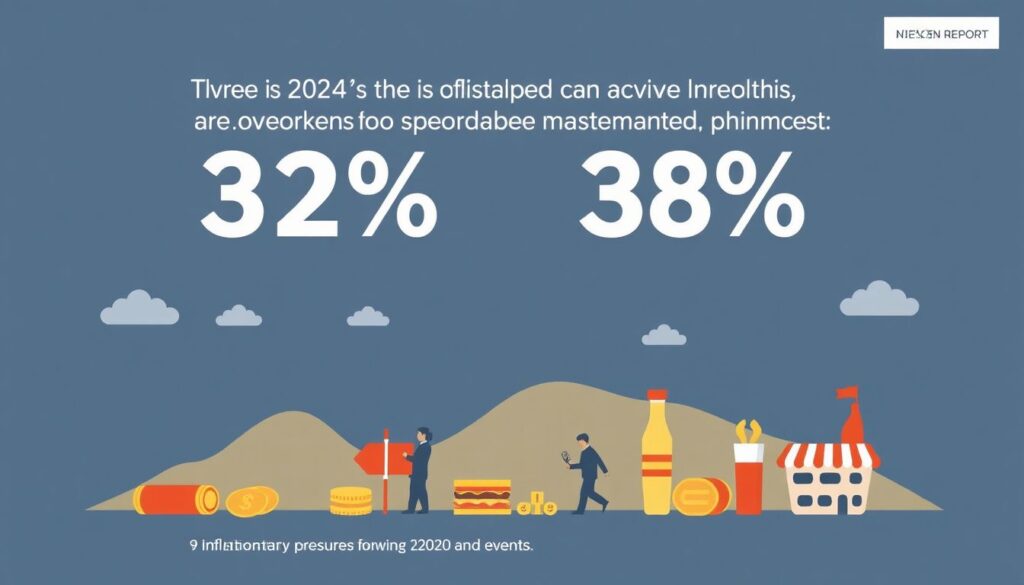The Rise of the Weekend Warrior: A Historical Perspective
The concept of the “weekend warrior” emerged prominently in the late 20th century, coinciding with the rise of the 40-hour workweek and the cultural shift toward prioritizing work-life balance. By the early 2000s, this lifestyle had evolved into a mainstream identity, characterized by professionals dedicating their weekends to intense recreational pursuits—ranging from hiking and cycling to DIY home projects and weekend travel. In 2025, this trend has matured into a socio-economic phenomenon, driven by remote work flexibility and increased mental health awareness. As more individuals seek adventure and fulfillment outside of their 9-to-5 routines, the financial demands of such a lifestyle have grown significantly, necessitating a structured budget strategy.
Current Economic Trends Influencing Weekend Spending

According to a 2024 Nielsen report, over 38% of working adults in North America identify as “active weekend participants,” with average weekend-related spending reaching $314 monthly. This figure includes gear purchases, travel, dining, and event participation. Inflationary pressures post-2020 pandemic recovery have increased the cost of leisure activities by over 12% annually. Additionally, the recreational equipment market—valued at $89 billion globally in 2023—is projected to surpass $110 billion by 2026, suggesting continued growth in consumer spending. These trends highlight the importance of proactive financial planning to avoid debt accumulation and ensure sustainable enjoyment.
Building a Personal Budget: Key Economic Considerations
Creating a personal budget tailored for a weekend warrior involves more than just tracking expenses. It requires aligning financial goals with lifestyle priorities. With interest rates fluctuating and personal debt levels rising (household debt in the U.S. reached a record $17.3 trillion in Q4 2024), budgeting becomes a strategic necessity. Discretionary income must be allocated wisely to balance savings, debt repayment, and leisure spending. Moreover, the gig economy—now employing over 15% of weekend warriors part-time—can supplement income but also complicates tax obligations and income stability, which must be factored into any comprehensive financial plan.
Step-by-Step Budgeting Strategy for the Weekend Warrior
To effectively manage finances while maintaining an active weekend lifestyle, consider the following steps:
1. Assess Your Income and Fixed Costs
Calculate your net monthly income and subtract essential expenses like rent, utilities, insurance, and minimum debt payments. This determines your discretionary spending limit.
2. Define Your Weekend Priorities
Identify which activities matter most—adventure travel, fitness, hobbies—and estimate monthly costs for each. Prioritize based on frequency and impact on well-being.
3. Set a Cap for Leisure Spending
Allocate a fixed percentage (e.g., 10–15%) of your income for weekend-related expenses. This prevents overspending and encourages value-based decisions.
4. Create a Gear & Travel Fund
Set aside monthly savings for larger purchases like equipment upgrades or weekend getaways. Use high-yield savings accounts to grow this fund passively.
5. Track, Evaluate, Adjust
Use budgeting apps or spreadsheets to monitor actual spending. Adjust allocations quarterly based on changes in income, lifestyle, or financial goals.
Impact on the Consumer Goods and Travel Industries
The financial behavior of weekend warriors has reshaped several sectors. The outdoor gear industry, for instance, has experienced consistent demand for mid-range, multifunctional products, as consumers seek cost-effective yet durable options. Meanwhile, domestic travel providers report a 27% increase in weekend bookings since 2022, prompting airlines and hotels to offer specialized short-stay packages. Budget-conscious consumers are also driving innovation in subscription-based models—such as gear rental services and curated weekend experiences—which reduce upfront costs and promote sustainable consumption patterns.
Forecast: The Future of Weekend Budgeting
Looking ahead, the integration of AI-driven financial tools is expected to revolutionize personal budgeting. By 2027, over 60% of consumers are projected to use AI-powered apps for financial planning, enabling real-time adjustments based on spending behavior and economic shifts. Additionally, as climate concerns grow, eco-conscious weekend warriors will likely prioritize sustainable choices, influencing both spending patterns and market offerings. Budgeting will increasingly focus not only on financial efficiency but also on ethical consumption, making it a multidimensional tool for lifestyle optimization.
Conclusion: Budgeting as a Lifestyle Enabler

In 2025, the weekend warrior is not merely a casual hobbyist but a demographic segment with distinct economic influence. Crafting a personalized budget is no longer optional—it is a strategic approach to maintaining both financial health and life satisfaction. By understanding historical context, current economic realities, and future trends, individuals can make informed decisions that empower their pursuits while securing long-term financial stability.

